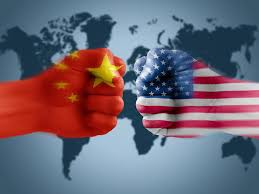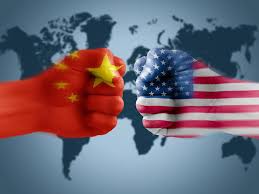
A number of electronics factories in the United States are now facing the heat of the US-China trade war. According to a survey conducted by an industry body, a number of electronics factories in the US have slowed down investment and scaled back hiring or have even started to lay off employees as they struggle to come to grips with the rising costs of trade tariffs.
According to the survey conducted by the IPC, which is a global electronic industries trade association, an increase in the costs because of the ongoing trade war between the US and China has hit at least one third of all the imports in terms of dollar value that are made by its members in the US.
Chinese factories have been the primary sources in recent years for raw materials, components and manufacturing equipment for the electronics industry of the US. Such parts are only assembled together in US factories, and in other markets nearby, into end products which range from control panels for tractors to medical imaging machines.
The Bannockburn, Illinois, based IPC said that its survey found that at least 20 per cent of the companies that operate in the US and who participated in the survey confirmed their decision of lowering of investments in the US because of the impact of the Donald Trump initiated trade war with China. Almost 13 per cent of the companies participating in the survey confirmed that they were resorting to cuts in jobs to compensate the rise in costs because of the trade war.
“It seems clear that loss of profitability is impacting the ability of these companies to invest in the U.S.,” said Shawn DuBravac, IPC’s chief economist.
Many of the member companies of the association said that they were ready to leave China, DuBravac said, but added that “it doesn’t appear from our results that a lot of that is flowing back to the US”. Instead such companies are looking to shift production to other low-cost countries of the region such as Vietnam and Malaysia.
Last month, his company paid over $200,000 in tariffs for Chinese electronics parts on behalf of his clients, said Brad Heath, chief executive of VirTex, an Austin, Texas-based manufacturer. VirTex is a contract manufacturer – a company that part assembles raw materials for larger manufacturers. Heath said that it can usually pass costs through to final customers.
“But our customers don’t have that ability,” he added. “So someone is suffering margin erosion.”
Passing along the tariff costs to their customers was turning out to be tough for many companies, the IPC survey found. About more than one third of the surveyed companies said that increasing prices for their customers to compensate for the trade war costs had not been possible for them so far because of competition in the market.
According to the survey, sourcing of raw materials and other products from outside of China was being done by just over half of companies surveyed with the aim of avoiding the import tariff sin the US. The survey also claimed that almost 70 per cent of the companies surveyed said that their profits had been eroded because of the trade war.
(Source:www.reuters.com)
According to the survey conducted by the IPC, which is a global electronic industries trade association, an increase in the costs because of the ongoing trade war between the US and China has hit at least one third of all the imports in terms of dollar value that are made by its members in the US.
Chinese factories have been the primary sources in recent years for raw materials, components and manufacturing equipment for the electronics industry of the US. Such parts are only assembled together in US factories, and in other markets nearby, into end products which range from control panels for tractors to medical imaging machines.
The Bannockburn, Illinois, based IPC said that its survey found that at least 20 per cent of the companies that operate in the US and who participated in the survey confirmed their decision of lowering of investments in the US because of the impact of the Donald Trump initiated trade war with China. Almost 13 per cent of the companies participating in the survey confirmed that they were resorting to cuts in jobs to compensate the rise in costs because of the trade war.
“It seems clear that loss of profitability is impacting the ability of these companies to invest in the U.S.,” said Shawn DuBravac, IPC’s chief economist.
Many of the member companies of the association said that they were ready to leave China, DuBravac said, but added that “it doesn’t appear from our results that a lot of that is flowing back to the US”. Instead such companies are looking to shift production to other low-cost countries of the region such as Vietnam and Malaysia.
Last month, his company paid over $200,000 in tariffs for Chinese electronics parts on behalf of his clients, said Brad Heath, chief executive of VirTex, an Austin, Texas-based manufacturer. VirTex is a contract manufacturer – a company that part assembles raw materials for larger manufacturers. Heath said that it can usually pass costs through to final customers.
“But our customers don’t have that ability,” he added. “So someone is suffering margin erosion.”
Passing along the tariff costs to their customers was turning out to be tough for many companies, the IPC survey found. About more than one third of the surveyed companies said that increasing prices for their customers to compensate for the trade war costs had not been possible for them so far because of competition in the market.
According to the survey, sourcing of raw materials and other products from outside of China was being done by just over half of companies surveyed with the aim of avoiding the import tariff sin the US. The survey also claimed that almost 70 per cent of the companies surveyed said that their profits had been eroded because of the trade war.
(Source:www.reuters.com)





